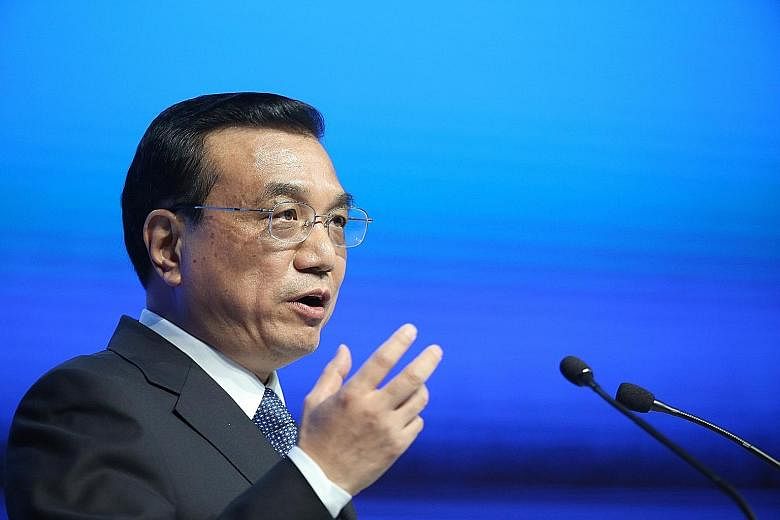South Korea, China and Japan are set to hold a summit, stalled since 2012, that will also allow South Korean President Park Geun Hye and Japan's Prime Minister Shinzo Abe to engage in formal talks for the first time since Ms Park took office.
The trilateral meeting will mark a significant step towards mending relations among the three neighbours, severely strained over territorial disputes and Japan's perceived lack of remorse over wartime atrocities.
China's Foreign Ministry said yesterday that Premier Li Keqiang would on Saturday make a three-day official visit to Seoul, during which he will attend the summit, the date of which has not been announced.
The presidential office later said Seoul has proposed a bilateral meeting between Ms Park and Mr Abe on Monday and an official said they are "waiting for Japan's response".
If confirmed, this would be the first one-on-one official meeting between the two leaders since Ms Park took office in early 2013.
The last bilateral meeting between the two countries was in May 2012, when President Lee Myung Bak met Japan's Prime Minister Yoshihiko Noda in Beijing.
Ms Park has until now adopted a hard stance towards Japan, refusing to hold any dialogue with Mr Abe unless Japan makes amends for its war crimes and addresses the suffering of military sex slaves known as comfort women.
US President Barack Obama, in a move by Washington aimed at improving ties between its two key allies in North-east Asia, brokered a trilateral summit with Ms Park and Mr Abe in The Hague in March last year, focused on how to deal with North Korea's nuclear ambitions.
Mr Abe greeted Ms Park in Korean, but she remained "stony- faced", according to South Korean media reports.
This time, however, there are signs that Ms Park, perhaps under pressure from both the US and China, would soften her approach.
When she was in Washington earlier this month to meet Mr Obama, she hinted after a speech on Oct 16 that she was open to a dialogue with the Japanese leader, but added that a "meaningful meeting" is possible only if there is progress made on the comfort women issue.
She also said that a trilateral meeting that includes China would allow South Korea and Japan to overcome obstacles in bilateral ties and lead to sincere dialogue in the future.
Ms Park is slated to hold separate talks with Mr Li on Saturday.
An official from her office said yesterday that the two leaders are expected to discuss bilateral relations as well as international and regional issues, including North Korea.
In Beijing, Deputy Foreign Minister Liu Zhenmin said at a briefing yesterday that the three-party talks aim to boost communication and maintain stability in the region.
"I think that China and South Korea will exchange views on the situation of the Korean Peninsula because upholding peace and stability on the peninsula and promoting denuclearisation of the Korean Peninsula are not the goal of China alone," he was quoted as saying by Yonhap news agency.
He also said that Beijing hopes to accelerate talks on a pending free- trade agreement, and that China and South Korea will also sign agreements in areas of economic cooperation, technology, environment and education.
Details of Mr Abe's visit have not been announced.
The China-South Korea-Japan summit was first held in 2008. It was held annually until ties between Seoul and Tokyo soured in 2012.


